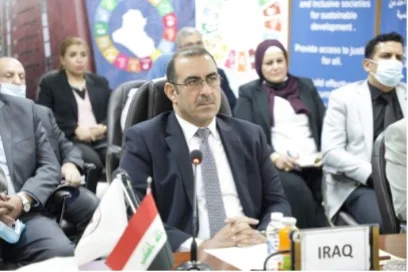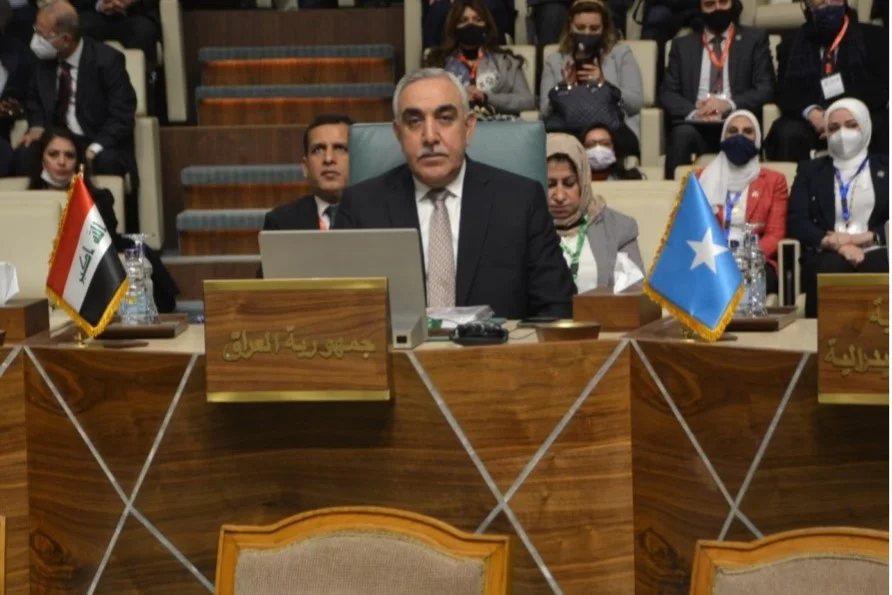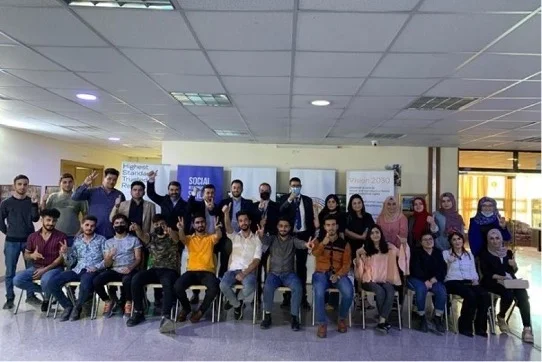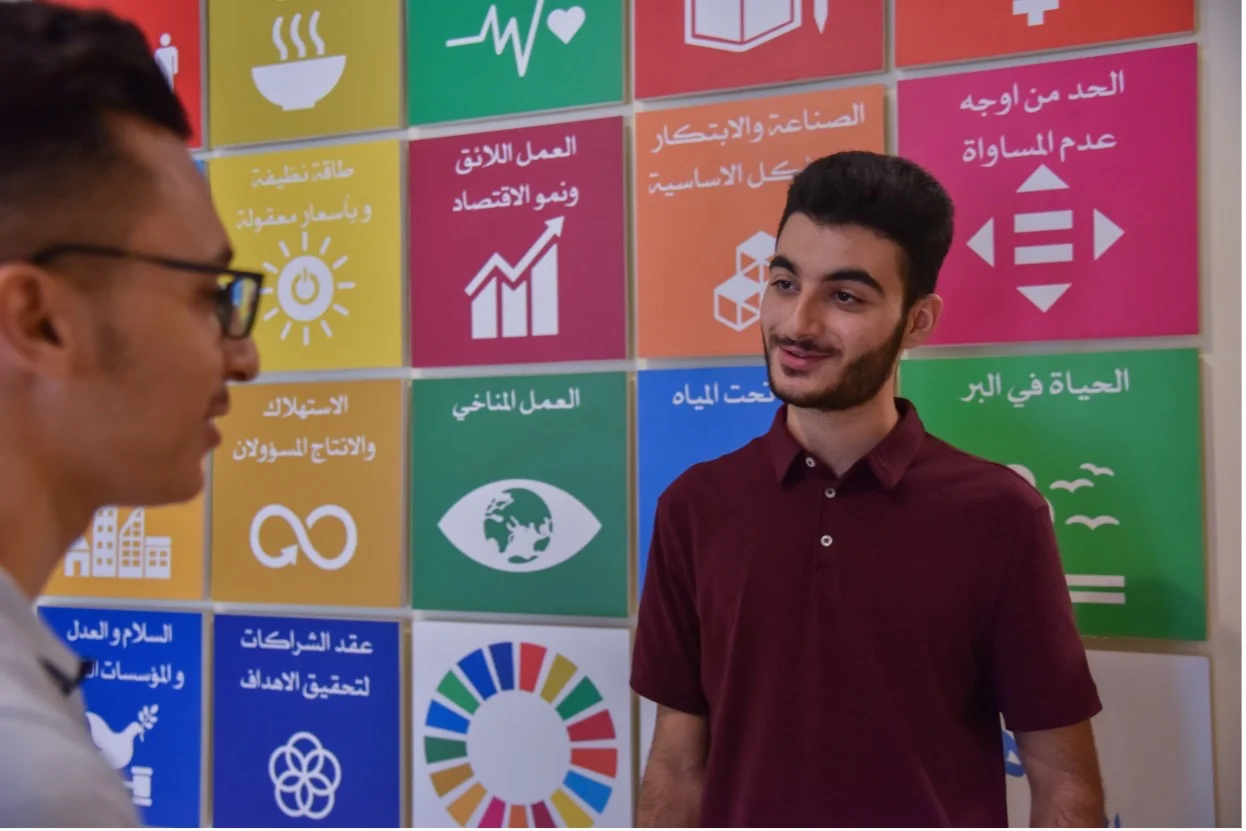The social and legal responsibility for child care in Iraq
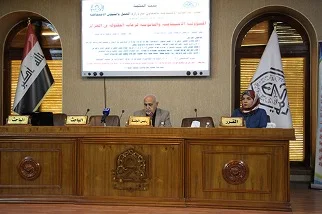
The House of Wisdom, in collaboration with the Ministry of Labor and Social Affairs, organized a scientific workshop titled “Social and Legal Responsibility for Child Care in Iraq” on October 21, 2021. The session was chaired by Dr. Khalil Ibrahim Rasool, with Ms. Fatima Hamed as the rapporteur, and attended by a group of specialized professors. The workshop included five research papers as follows:
1- Dr. Abeer Mahdi Al-Jubouri, Deputy Minister of Labor and Social Affairs, presented a paper titled “Skills Required for Dealing with Children in Street Situations and Their Important Roles.”
2- Dr. Mazen Bashir Mohammed, from Al-Farahidi University, presented a paper titled “Social and Legal Protection of Children.”
3- Dr. Mohammed Musa Jaber, Legal Advisor at the General Directorate of Administrative Affairs, Ministry of Education, presented a paper titled “Child Protection in International and Iraqi Law.”
4- Dr. Nidal Kamir Abdulwahid Al-Abbadi, from the Information Technology University, presented a paper titled “Directed Thinking Strategies for Childhood and Gifted Care.”
5- Dr. Mahmoud Saadi Lutf and researcher Raghad Jasim Latif, from the Child Care Authority Office, presented a research paper titled “Proposals for Developing the Work of State Institutions.”
The workshop started with a speech by the session’s chairman, who emphasized the importance of this workshop. The House of Wisdom, within the research activities of the Department of Social Studies, has given great importance to the topic of child care and education. It has previously organized several seminars on childhood in Iraq and the developmental challenges facing Iraqi society. It has also organized several seminars on “Educational Regulation for Children,” including the Iraq seminar on November 26, 2015, which was dedicated to writing on the topic by a group of professors from Iraqi universities. The seminar’s proceedings will be published soon in the form of a book. He also added that Iraq has ratified the Convention on the Rights of the Child in 1994, making it internationally obligated to a set of human and ethical duties that constitute non-negotiable rights. However, the catastrophic conditions in Iraq, the years of the criminal entry of ISIS into Iraq, and the waste of resources have made children the first victims of their present and future.
According to the Convention on the Rights of the Child, any individual under the age of eighteen is considered a child. The Convention also obliges the parties to refrain from any form of discrimination against children, as stated in Articles 1 and 2 of the Convention.
Research Papers:
First: Dr. Abeer Al-Jubouri discussed the importance of skills for social workers in child care centers, highlighting the professional practices in the field of child care. She emphasized that social workers’ skills are essential in achieving the desired goals. The skills of social workers are crucial in practice as they contribute to achieving the goals sought. The researcher also mentioned some aspects that emphasize the importance of skills in the social work profession, including:
1- Availability of skills, time, and effort for social workers.
2- Directing the skills of practitioners towards the right paths to achieve social goals.
3- Demonstrating the skills and abilities possessed by social workers, as they apply knowledge in different professional situations.
4- Availability of professional skills and appropriate indicators that can be the basis for evaluating social work practice and also provide an opportunity to develop training programs for social workers.
5- Professional skills increase the ability to perceive and understand the interrelated factors that affect situations based on sound scientific and professional knowledge.
She also mentioned the skills of social workers defined by the National Association of Social Workers in the United States, including:
– Communication skills with children.
– Selecting information that challenges needs.
– Establishing professional relationships.
– Discussing and providing advice.
– Negotiation and advocacy skills.
– Confidentiality.
Second: Dr. Mazen Bashir Mohammed discussed the possibility of understanding social care and linking it to legal care through reading the legal provisions of the Child Care Law No. 76 of 1983. The main objective of this law is to protect and prevent children from deviating by establishing an integrated system based on scientific foundations and coordination in work. It starts with prevention and protection before deviance and ends with care.
The researcher also mentioned the main objectives of the Child Care Law, including:
1- Establishing an integrated system based on scientific foundations and coordination in work.
2- Giving exceptional importance to protection, prevention, and appropriate care for children, as these are essential factors in preventing deviance.
3- Allocating suitable and diverse treatment institutions at a decent level, managed by specialists in child affairs.
4- Involving members of relevant sciences, such as sociology and psychology, in issuing judgments.
5- Introducing the issue of guardianship by approving the removal of parental authority by the judiciary when it is in the best interest of the child and society.
Thirdly: Dr. Mohammed Musa Jaber ((Child Protection in International Law and Iraq))
The researcher discussed in the beginning of his research paper the importance of international standards related to children’s rights. In 1924, the League of Nations adopted the Geneva Declaration on the Rights of the Child, which included the child’s right to development, special assistance in times of need, priority in relief and economic freedom, protection from exploitation, and upbringing that instills social awareness and a sense of duty. In 1946, the United Nations General Assembly established the United Nations International Children’s Emergency Fund (UNICEF) when it adopted the Universal Declaration of Human Rights in 1948, which included Article 25 stating the entitlement of mothers and children to special care and assistance and social protection. In 1959, the Declaration of the Rights of the Child was adopted, recognizing a range of rights including the right to education, play, supportive environment, and healthcare. With the adoption of the International Covenant on Civil and Political Rights and the International Covenant on Economic, Social and Cultural Rights in 1966, UN member states pledged to ensure equal rights for all children, including the right to education and protection. The United Nations General Assembly also called on member states to adhere to the Declaration on the Protection of Women and Children in Emergency and Armed Conflict, prohibiting attacks against civilian women and children and their imprisonment, and emphasizing the sanctity of women’s and children’s rights during armed conflicts. The United Nations Human Rights Committee presented a draft Convention on the Rights of the Child in 1978 for consideration by a working group composed of member states, agencies, governmental and non-governmental organizations.
The researcher also discussed Iraq’s ratification of the Convention on the Rights of the Child under Law No. (3) of 1994, with a reservation regarding the child’s freedom of religion as stated in paragraph (1) of Article (14), as changing religion is contrary to the provisions of Islamic law as stated in Article (1) of the law. Iraq also decided to accede to the two optional protocols to the Convention on the Rights of the Child under Law No. (23) of 2007.
The researcher highlighted the decisions of the Council of Ministers on the Child Protection Law presented by the Ministry of Labor and Social Affairs, which will ensure the provision of an updated legislative framework for child and family protection. Iraq also ratified the Arab Charter on the Rights of the Child, adopted by the Council of Arab Ministers of Social Affairs in its fourth session held in Tunisia from 4 to 6/12/1982, under Law No. (72) of 1986.
Fourthly: Nidal Kamir Abdulwahid Al-Abbadi ((Wave Thinking Strategy for Childhood and Gifted Care))
The researcher mentioned at the beginning of her research paper the behavioral characteristics of pre-school children and their relationship with some variables. The first five years of a person’s life are a critical stage in cognitive development, and cognitive development is achieved through two aspects: cognitive structure and cognitive functions. Cognitive structure refers to the thinking state that a child possesses in each stage of development, and it is believed that cognitive structures change over time as a result of the child’s interaction with the environment. Cognitive functions refer to the processes used by the child. Cognitive development relies on the cognitive representation process, which is the way the child translates or represents the environment around them.
The researcher also added that children who enter kindergarten have sensory experiences that contribute to their development and provide them with a great opportunity to express their creative abilities and talents. Research indicates that about 50% of children’s intelligence is formed in the first four years of their lives until the age of six.
The researcher then discussed the importance of the guided imagery strategy and the development of innovative thinking in children. Imagination is a mental process used by children when facing a situation based on their cognitive structure. One of the important steps of the guided imagery strategy is to prepare an imaginative scenario, which is a short and uncomplicated sentence that allows the learner to construct a sensory image, aiming to enhance all the abilities of the learners.
Fifthly: Dr. Mahmoud Saadi Lutfah and the researcher Raghad Jasim Lateef ((Proposals for Developing the Work of State Institutions))
The researcher mentioned at the beginning of his research paper the social and legal responsibility of child care institutions in Iraq. It is necessary to mention the social institutions that provide services to vulnerable and weak groups in both their executive and coordination aspects. Here, I specifically refer to the Child Care Authority, which was established in 1982 under the chairmanship of the Minister of Labor and Social Affairs and included representatives from relevant ministries and experts in the field. It is open to international organizations and civil society organizations. Returning to the legal responsibility of the Child Care Authority, as stated in its formation decision, it defines the policy for child protection, monitors the status of plans for the relevant ministries, monitors their implementation, and in other words, the role of the authority is not executive but rather supervisory and coordinating, and the member ministries represented in the authority are responsible for implementing the agreed programs and activities, which are determined based on the size of the problem and its impact on society today and in the future.
And returning to the role and tasks of the Child Care Authority, it has sought, along with its main partner, the United Nations Children’s Fund (UNICEF), to adopt a set of strategic objectives within the framework of the Child Protection Policy in Iraq, based on a study of the reality of child protection that included an analysis of the legal and institutional framework and a package of data on a number of social phenomena that represent blatant violations of the Convention on the Rights of the Child, which Iraq ratified in 1994.
The researcher presented the document approved by the Iraqi Cabinet in 2017, which adopted an integrated series starting with prevention, early intervention, rehabilitation, and reintegration through eight basic outcomes that align with achieving the eight goals set in the Sustainable Development Goals (2020-2030), which are:
1/ Protecting children through a legislative framework.
2/ Ensuring the safe living of children within supportive families and local communities that promote their rights.
3/ Enhancing children’s participation in raising their issues and proposing solutions to them.
4/ Providing children and families with sufficient support before the occurrence of danger.
5/ Enhancing children’s safety on the internet.
6/ Creating a safe and supportive living environment for children affected by conflict and forced displacement.
7/ Having a comprehensive system for monitoring, reporting, and collecting data on child issues.
8/ Clear mechanisms for implementation and monitoring.
The researcher also presented the most important proposals for developing the work of institutions responsible for child care, which are:
First: Orphans
1/ Implementing the family integration program, which involves placing the orphan in his/her own family or in an alternative family of relatives, while providing them with a monthly salary.
2/ Activating the role of the social researcher in the shelter, giving them a greater role in solving the social and psychological problems of the beneficiaries.
Second: Beggars and Homeless
1/ Enrolling beggars in training workshops in the vocational training department at the Ministry of Labor and Social Affairs to prepare, rehabilitate, and teach them an alternative profession to begging.
2/ Conducting awareness campaigns in cooperation with the Iraqi media network about the dangers of the begging phenomenon, its consequences, and how to eliminate it.
3/ Establishing small projects and kiosks to provide job opportunities for beggars and homeless people.
4/ Providing loans to beggars’ families to undertake small projects and adopting the productive family system.
5/ Cooperating with humanitarian organizations to provide assistance to beggars’ families or to develop employment programs for them.
6/ Including disabled beggars and providing them with prosthetic limbs in case of amputation in cooperation with the Ministry of Health.
Third: Children in Schools
1- Activating the school feeding program for children in schools and kindergartens in all areas and schools in cooperation with the World Food Program.
2- Activating the role of the school counselor in solving students’ problems and providing appropriate solutions.
Recommendations
1- Addressing the economic and social problems faced by Iraq as a result of the conditions it has gone through, whether related to wars or criminal acts committed by the terrorist criminal organization of ISIS, and the resulting confrontations and the problems accompanying them, which have led to much suffering experienced by these immigrant factors.
2- Serious attention should be given to orphans and homeless children and considering them as the main target for protection and care to prevent their loss and to prevent them from becoming tools for committing crimes in all its forms.
3- Reorganizing the efforts made to address the widespread illiteracy among children, as this is one of the main pillars of social and cultural backwardness.
4- Serious attention and adoption of legal frameworks to address cases of school dropout and directing children not to work at a young age, as this conflicts with national labor laws.
5- Encouraging innovative programs to provide incentives for low-income Iraqi families to improve their living conditions.
6- Expanding the construction of schools and primary education in rural areas, districts, and provinces to keep up with population growth.
7- Adopting continuous evaluation methods for the tasks defined by the law for some institutions, in order to assess the extent to which these tasks and objectives have been achieved in this regard.
8- Working to create societal awareness among members of society that caring for delinquent juveniles after their release from correctional institutions is a highly important social service. To achieve this purpose, it is necessary to cooperate with them and provide everything that facilitates their integration into society and helps them address the problems they face.
 Algeria
Algeria Bahrain
Bahrain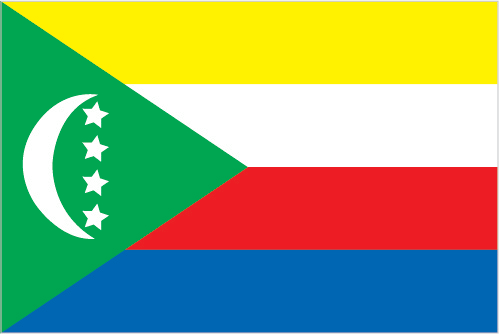 Comoros
Comoros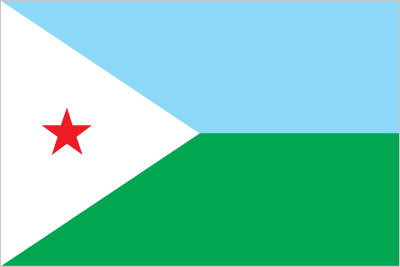 Djibouti
Djibouti Egypt
Egypt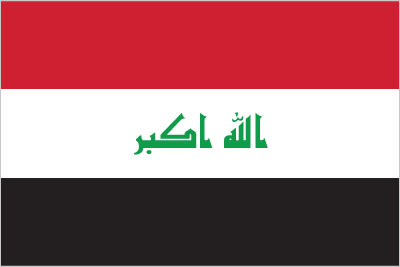 Iraq
Iraq Jordan
Jordan Kuwait
Kuwait Lebanon
Lebanon Libya
Libya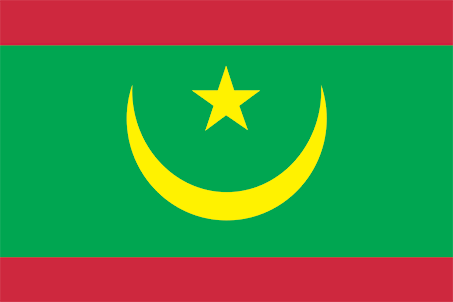 Mauritania
Mauritania Morocco
Morocco Oman
Oman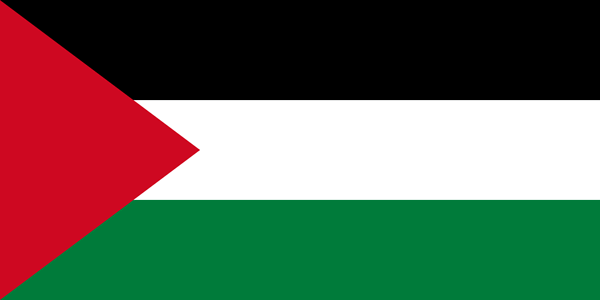 Palestine
Palestine Qatar
Qatar Saudi Arabia
Saudi Arabia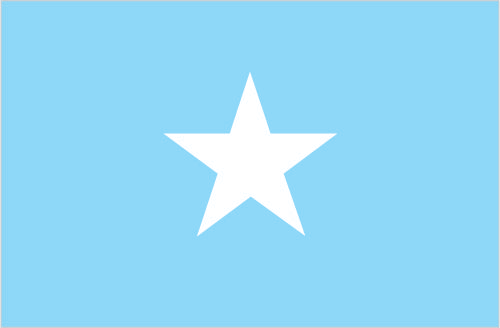 Somalia
Somalia Sudan
Sudan Tunisia
Tunisia UAE
UAE Yemen
Yemen